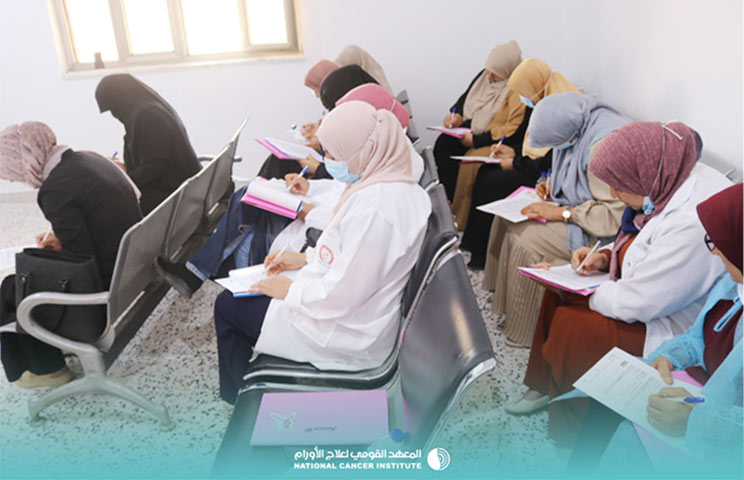Plus d'informations
11 Décembre 2023
Researchers develop “mini-tumours” as a new tool to understand cancer progression and design clinical interventions for rare cancers
In a new study, researchers from the Rare Cancers Genomics Team at the International Agency for Research on Cancer (IARC), the Hubrecht Institute (The Netherlands), and other partner institutions have teamed up to create “mini-tumours”. These are small versions of a rare and understudied cancer type that affects neuroendocrine cells, which are similar to hormone-producing nerve cells and are found throughout the body. These mini-tumours are a tool that can serve as a test bed to investigate how cancer develops in these cells, and how it may be treated. The study was published in the journal Cancer Cell.
Neuroendocrine neoplasms are rare and understudied cancers. They can present as low- and intermediate-grade tumours that grow, evolve, and accumulate DNA damage slowly, or as high-grade neuroendocrine carcinomas that grow and accumulate DNA damage rapidly, with regular emergence of dangerous variants. The new study presents a novel biobank of organoids of neuroendocrine neoplasms from multiple body sites, including the lung, pancreas, and small intestine. In the study, the researchers show that these organoids are thriving “mini-tumours” that preserve the growth patterns and molecular characteristics of their parental tumours, down to their most subtle genetic characteristics. Rather than static pictures of the tumour at the time of diagnosis, organoids are living and evolving entities that can mimic the future evolution of a cancer, empowering researchers and clinicians with a realistic and personalized model of the disease.
One of the study’s most significant findings is the discovery of a previously unknown dependency on epidermal growth factor (EGF) in pulmonary tumours. The researchers validated this finding in an independent cohort, revealing that approximately 50% of pulmonary neuroendocrine tumours express the EGF receptor. This unexpected insight into the role of EGF in pulmonary neuroendocrine tumours suggests potential avenues for personalized therapeutic interventions.
This study marks a pivotal moment in the journey towards understanding the causes of these understudied diseases and building more effective clinical interventions for them. It also offers a unique platform that will enable researchers to further study tumour formation, progression, and new treatments.
Dayton TL, Alcala N, Moonen L, den Hartigh L, Geurts V, Mangiante L, et al.
Druggable growth dependencies and tumor evolution analysis in patient-derived organoids of neuroendocrine neoplasms from multiple body sites
Cancer Cell, Published online 11 December 2023;
https://doi.org/10.1016/j.ccell.2023.11.007
Other news

IARC at the International Congress on Occupational Health 2024
Researchers from the International Agency for Research on Cancer (IARC) will present during the 3...
26.04.2024
Read more

IARC Director addresses policy-makers and health workers in Brazil to mark 50 years of FOSP
Dr Elisabete Weiderpass, Director of the International Agency for Research on Cancer (IARC), will...
25.04.2024
Read more

Breast cancer early detection: training of master trainers in Libya
About 50 nurses and midwives from the main polyclinics in Misrata, Libya, have been trained on th...
25.04.2024
Read more